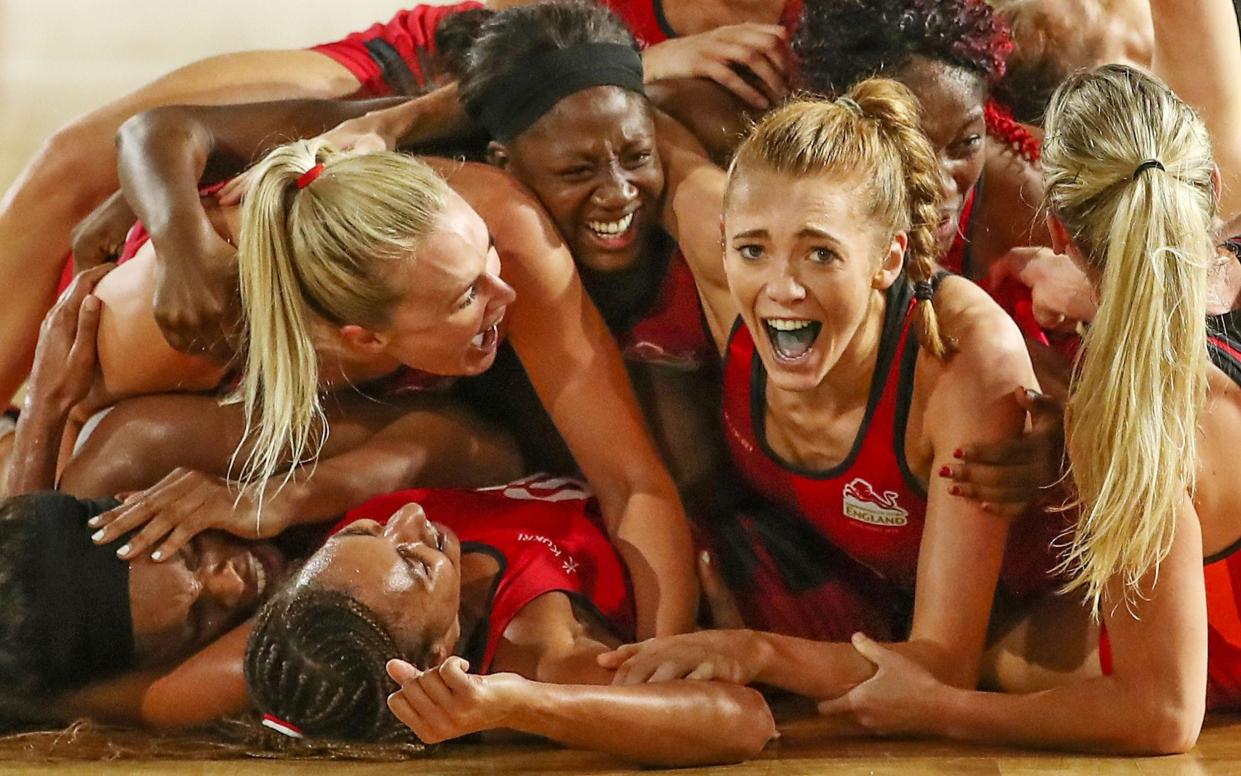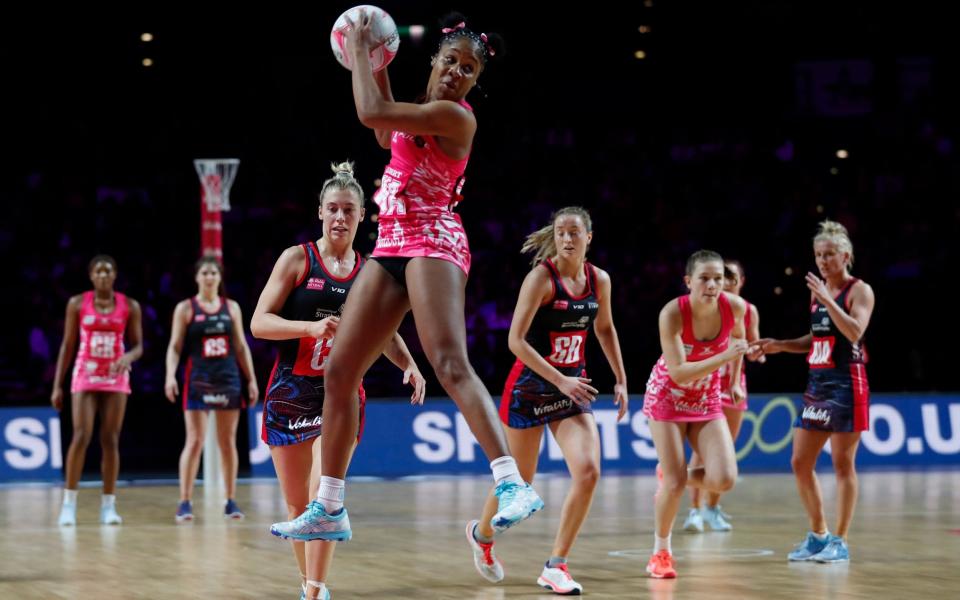Netball needs Commonwealth gold-medal spirit to save Superleague, says Jade Clarke


Jade Clarke, England’s most capped netball player, believes Superleague fans must recreate the spirit inspired by the country’s iconic Commonwealth Games gold in 2018 if elite domestic netball is to survive the coronavirus crisis.
England’s Commonwealth title on Australia’s Gold Coast marked a watershed moment in the country’s sporting history and sparked a boom in grassroots participation, with a 130,000 increase in those playing weekly.
But there are fears the momentum generated by that historic achievement - and the hosting of the World Cup in Liverpool last year - could threaten the growing profile of the Superleague, the country’s elite tier of domestic netball.
The semi-professional competition drew a record crowd of 9,250 - the largest ever for a one day event in British netball history - during its opening round in February. To put that into context, 7,233 attended last year's Netball World Cup final day in Liverpool, when England beat South Africa to Bronze and New Zealand ended Australia's reign.
“Just like the nation got behind us after the Commonwealth gold in 2018, I think we will need a real surge like that in our Superleague games to make sure we can all do the sport we love,” said 176-time international Clarke, who plays for Wasps.
“If we want a good England team, we have to have a really strong league and all the levels that really work well. It’s going to have to be a real team effort. Ticket sales and merchandise sales are the main source of income for clubs, but I’m really confident people can get behind our sport to keep it going to make sure the clubs can carry on and they don’t dissolve.”
The Superleague has been suspended until April 30 although that date could be pushed back further when competition organisers meet later this month.

Reigning champions Manchester Thunder are understood to be the only club to have furloughed their playing squad in light of the league suspension. Although some Superleague players are not official employees of their franchise, in a sport where ticket sales for a match top £10,000, the furloughing scheme is an avenue the majority of franchises are likely to pursue where possible.
“Ticket revenue is probably 70 percent of our overall income,” Mikki Austin, the managing director of Surrey Storm, told Telegraph Sport. “Unfortunately, that’s what puts women’s sport at such a risk overall when compared to men’s. Our league does not have a bail out from a league association like some men’s sports do, there is no balloon payment to be used. It would literally be down to each individual franchise to essentially bail themselves out and cover the growing revenue losses.
“Those franchises attached to a university might find it a bit easier to be sustainable because they might have a little bit to fall back on, but for independent franchises it’s a massive worry right now.”

